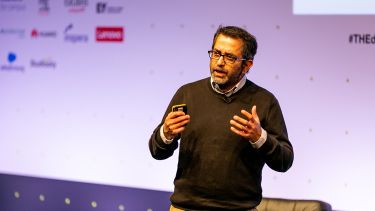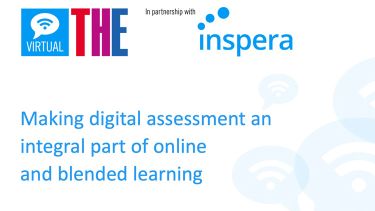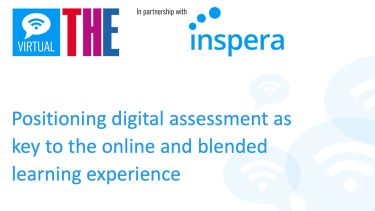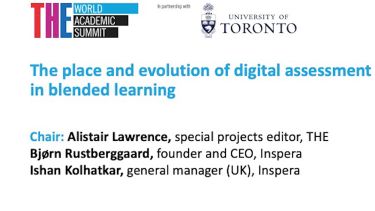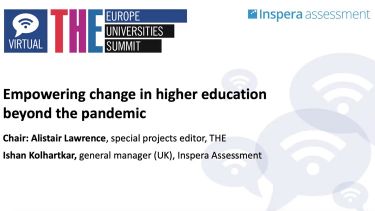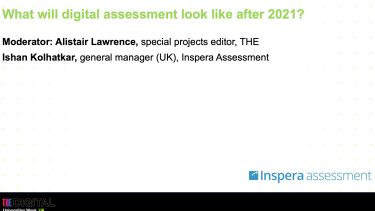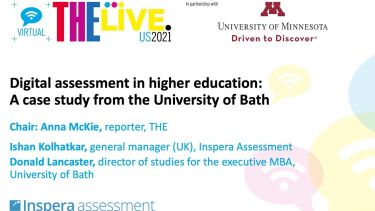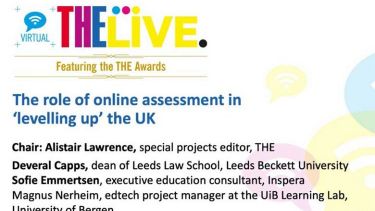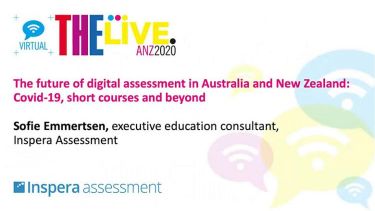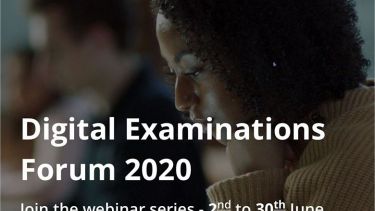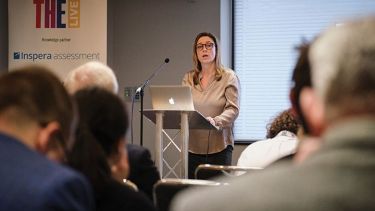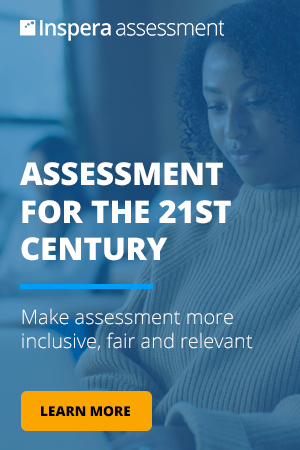In the new reality of blended learning, innovative forms of assessment can provide flexibility and empower staff and students
Digital assessment can unlock more creative and authentic ways to test student knowledge and prepare graduates for the real-world challenges of the future workplace
A Times Higher Education round table, held in partnership with Inspera Assessment, asked a panel of higher education leaders from Australia and New Zealand how digital assessment can revolutionise online and blended learning.
Chair Alistair Lawrence, special projects editor at Times Higher Education, said the Covid-19 pandemic had “rewritten the traditional rules of assessment and examinations”.
Jennie Shaw, deputy vice-chancellor and vice-president (academic) at the University of Adelaide, said digital assessments had been found to suit some staff and students better than traditional assessments.
“There are some areas, including some areas pre-pandemic, that insisted that all assessment be face-to-face, that are now insisting that they will never return to face-to-face assessment,” she said. “If we’re to do that, we will in some areas need significant investment in our online systems and ongoing training and support for our staff and students.”
Giselle Byrnes, provost at Massey University, said a challenge for universities was moving away from thinking about assessment in “linear terms”.
“I think we should be looking at increasingly authentic assessment and what that looks like for students in really preparing them for the world of work,” she said. “At our university, we’ve seen an increasing move away from summative forms of assessment, like traditional examinations. I think we’ve got to be very open to dynamic forms of authentic assessment.”
Bridget Kool, pro vice-chancellor of education at the University of Auckland, said staff had made a huge effort to upskill and transform delivery, including designing new forms of assessment.
“We’ve introduced a new structure with our central learning designers so faculties can approach them with projects and maybe ask for help to redesign an assessment,” she said. “The whole idea of the learning designers is ‘train the trainer’, so they then develop those skills and support other people in their staffing teams.”
Dominique Parrish, pro vice-chancellor of learning and teaching at Macquarie University, said the pandemic had allowed staff and students to change their thinking about assessment. Rather than only summative exams, the institution had introduced more assessed project work and work integrated learning, focusing on how learning translates to a workplace.
“We’re looking more at assessment as learning and assessment for learning, rather than assessment of learning. So, it’s this shift in thinking about how we assess our students,” Parrish said.
Ishan Kolhatkar, general manager for Australia and New Zealand at Inspera Assessment, said some accredited bodies continued to insist on more traditional, invigilated exams, but there were also a range of other, flexible assessment options. Using a platform like Inspera to transition to digital assessment could increase efficiency and reduce the time faculty spent on manual tasks.
“That then frees up time for people to do the innovation we’ve heard about, to think about the ways in which they can assess in a different way, or perhaps a better way,” Kolhatkar said.
In the wake of the pandemic, graduates would have to be “properly equipped” for workplaces with growing engagement with digital formats, said Sherman Young, deputy vice-chancellor of education and vice-president of RMIT.
“We need to make sure that the skills that they have and the way we assess those skills is appropriate for this future,” Young said. “One of the drivers will be, ‘how can we make sure that we assess in such a way that makes sense for a future that we know is going to be different from the past?’ And that, clearly, is going to have to be, to a certain extent, digital.”
The panel:
- Giselle Byrnes, provost, Massey University
- Ishan Kolhatkar, general manager of Australia and New Zealand, Inspera Assessment
- Bridget Kool, pro vice-chancellor of education, University of Auckland
- Alistair Lawrence, special projects editor, Times Higher Education (chair)
- Dominique Parrish, pro vice-chancellor of learning and teaching, Macquarie University
- Jennie Shaw, deputy vice-chancellor and vice-president (academic), University of Adelaide
- Sherman Young, deputy vice-chancellor of education and vice-president, RMIT
Watch the webinar on demand above or on the THE Connect YouTube channel.
Find out more about Inspera Assessment.


